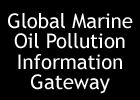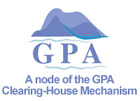|
FACTS
|
 ABC on
oils: Definitions and characteristics of oils •
Where does petroleum come from? • Use of oils
• Quantities (extraction, production, consumption,
amounts entering the marine environment)
ABC on
oils: Definitions and characteristics of oils •
Where does petroleum come from? • Use of oils
• Quantities (extraction, production, consumption,
amounts entering the marine environment)
 Sources:
How do oil products become pollutants in the coastal and marine
environment? • Natural sources • Land-based
sources • Sea-based sources
Sources:
How do oil products become pollutants in the coastal and marine
environment? • Natural sources • Land-based
sources • Sea-based sources
 Effects:
What happens with oils in water? • Oil damage
in the coastal and marine environment: Wildlife - Habitats
- Human health - Economy
Effects:
What happens with oils in water? • Oil damage
in the coastal and marine environment: Wildlife - Habitats
- Human health - Economy
 Measures:
Ways to prevent or combat oil pollution in the marine environment
• Prevention on land • Prevention
at sea • Combatting at sea • Combatting
in the coastal zone (sea-land interface)
Measures:
Ways to prevent or combat oil pollution in the marine environment
• Prevention on land • Prevention
at sea • Combatting at sea • Combatting
in the coastal zone (sea-land interface)
 FAQs:
Frequently Asked Questions about oils in the marine environment
FAQs:
Frequently Asked Questions about oils in the marine environment
 Oils glossary:
Brief explanations of about 100 oil-related words and terms,
with links to more information
Oils glossary:
Brief explanations of about 100 oil-related words and terms,
with links to more information
 Read more!
List of web sites of organizations with much information on
oil and marine oil pollution issues
Read more!
List of web sites of organizations with much information on
oil and marine oil pollution issues
 Related
issues • Briefly about other shipping-related
issues/problems.
Related
issues • Briefly about other shipping-related
issues/problems.
|
|
Framework
for action:
GLOBAL ACTION
|
 Framework
for action
Framework
for action
 Global
agreements (conventions, action plans).
Global
agreements (conventions, action plans).
 Global
actors.
Global
actors. |
Framework
for action:
REGIONAL ACTION
|
 Regional
and national action and actors: Agreements, actors, practical
action, etc. by region (21 regions/seas worldwide).
Regional
and national action and actors: Agreements, actors, practical
action, etc. by region (21 regions/seas worldwide). |
|
GOOD
EXAMPLES
|
 What people do
globally, regionally and nationally, to prevent discharges and
damage by oil in the marine environment.
What people do
globally, regionally and nationally, to prevent discharges and
damage by oil in the marine environment. |
|
DOCUMENTS
|
 Guide to
documents on marine oil pollution.
Guide to
documents on marine oil pollution. |
|
KIDS'
PAGES
|
 Kids on how to
avoid marine oil pollution.
Kids on how to
avoid marine oil pollution. |
|
CONTACTS
|
 Contacts.
Regional Seas secretariats and contacts
Contacts.
Regional Seas secretariats and contacts |
|
ABOUT
US
|
 About the site
and the GPA.
About the site
and the GPA. |
| OTHER
GPA NODES |
 The Global Marine Oil Pollution Information Gateway is one of
nine pollutant source category nodes of the UNEP GPA Clearing-House
Mechanism — visit
other GPA nodes
The Global Marine Oil Pollution Information Gateway is one of
nine pollutant source category nodes of the UNEP GPA Clearing-House
Mechanism — visit
other GPA nodes |
| SEARCH |
 Search the entire UNEP GPA system for oil-related concepts.
Search the entire UNEP GPA system for oil-related concepts.
|



